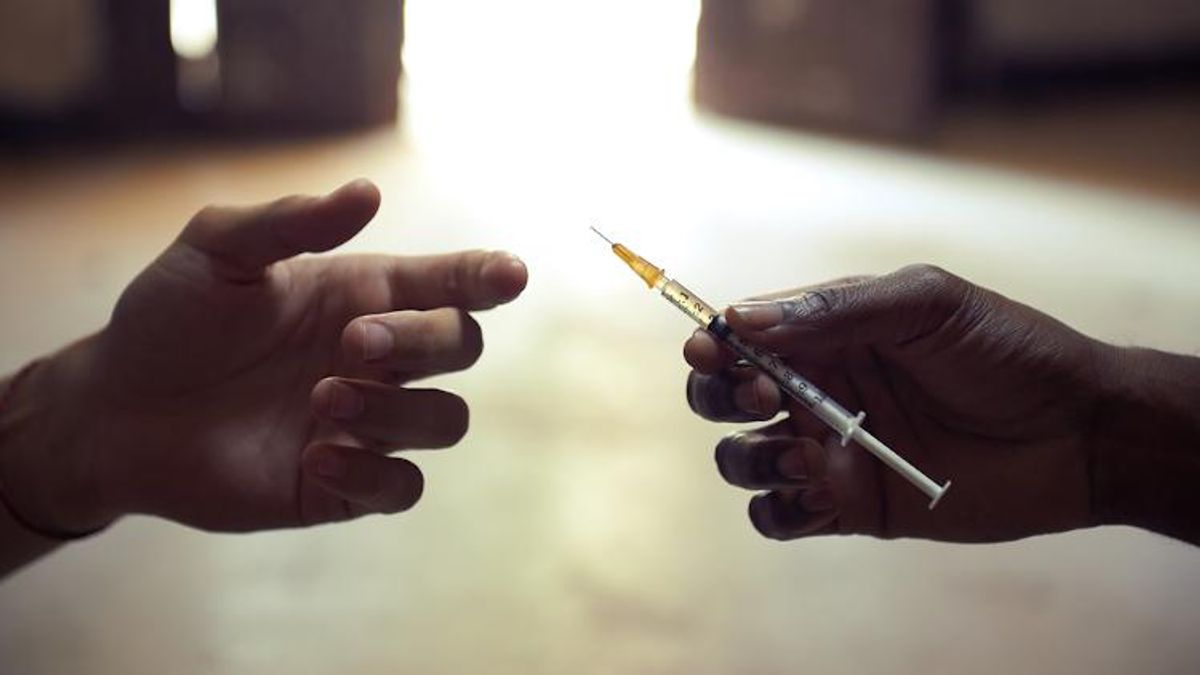News
HIV Spike in West Virginia Linked to Canceled Needle Exchange

Via Shutterstock
Police went undercover to shut down one successful program.
March 23 2021 12:35 AM EST
March 23 2021 8:35 AM EST
By continuing to use our site, you agree to our Private Policy and Terms of Use.

Police went undercover to shut down one successful program.
Health experts have uncovered a disturbing spike in new cases of HIV among intravenous drug uses in West Virginia, and many believe the 2018 cancellation of a needle exchange program may be at least partially to blame. The outbreak clusters have been centered around Kanawha and Cabell counties, with the small region rivaling New York City in new cases despite having only a fraction of the population. Experts warned the situation will only get worse unless steps are taken to counter the threat.
“It is possible the current case count represents the tip of the iceberg,” Dr. Demetre Daskalakis, chief of HIV prevention at the Centers for Disease Control, told a Kanawha County HIV task force meeting last month. “There are likely many more undiagnosed cases in the community. We are concerned that transmission is ongoing and that the number of people with HIV will continue to increase unless urgent action is taken.”
Experts like Daskalakis expressed concern that local leaders ignored studies showing needle exchange programs reduce new cases of HIV among intravenous drug users. In addition to shutting down a Kanawha County exchange program in the city of Charleston — the state's capital and largest city — police ran undercover operations against an activist group offering its own program. Solutions Oriented Addiction Response initially offered clean needles from organizers' cars, then a grocery store parking lot before they were chased off by police, forcing them to migrate services to a local church parking area.
“We started doing our thing about 18 months ago because we knew [the crackdown] was coming,” Sarah Stone, SOAR co-founder, said.
Despite the success of a similar program in the nearby city of Huntington, Kanawha County officials have no plans to resurrect their own shuttered needle exchange. Sherri Young, executive director of the Charleston health department, told BuzzFeed News the cancelled program was “very damaging.” She referenced a city survey of police, fire, and public works personnel showing 17 percent had been stuck by a needle on the job, with more than 80 percent saying they saw no need to expand syringe exchange programs and also wanted a one-for-one exchange of needles. The numbers cited by Young have been criticized since only one-third of those asked to complete the survey actually did.
Rather than reduce new cases of HIV by offering needles to intravenous drug users, Young instead indicated the local health department will instead expand testing and use a mobile van to locate hard to reach people.